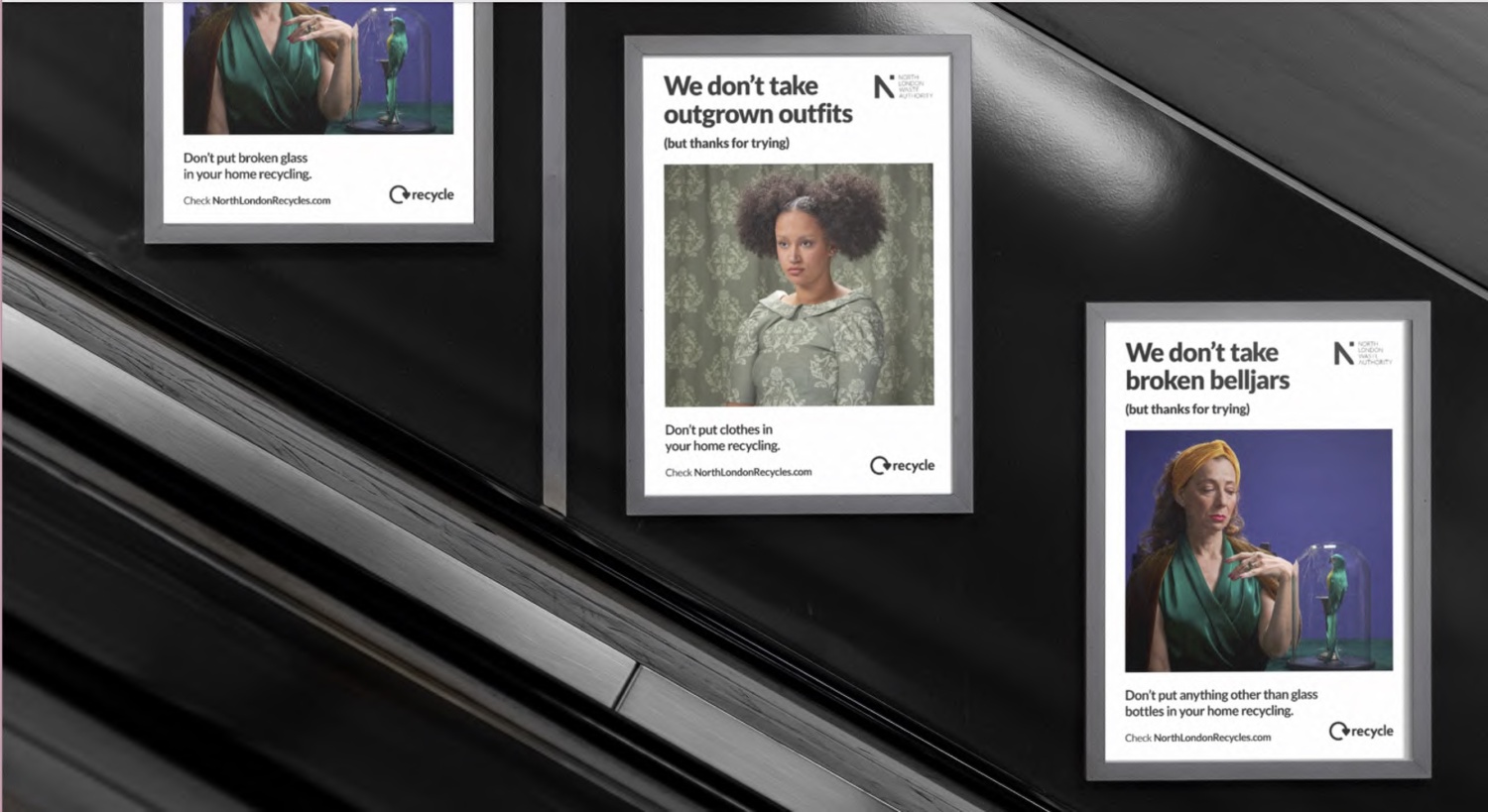Background
Recycling contamination – the mixing of non-recyclables with dry mixed recycling – is a significant problem for the North London Waste Authority (NLWA), costing at least £1.2m in rejected loads annually. A lack of understanding of the system means people aren’t aware of the consequences caused by contaminants. We worked with creative partners Among Equals to develop an engagement campaign that challenged contamination behaviour by improving knowledge of what’s not collected for recycling and increasing people’s motivation to get it right.
Insight
Recycling rates have generally risen over time but with that, so has contamination. Our analysis revealed there are multiple reasons for contamination, spanning individual drivers, issues relating to the type of item being disposed of, and situational factors. Contamination is often a result of genuine mistakes made with good intentions, so we had to make sure we weren’t ‘shaming’ anyone for doing it wrong.
We were challenged to create a uniform communications campaign which could be scaled up or down, uniting a diverse set of audiences and behaviours across multiple channels. It had to work across 7 local authorities and different types of housing – so understanding overarching recycling motivators was necessary to uncover where to target behaviour change efforts.
Intervention
From our previous work and research, we know that recycling behaviour is influenced by ease, knowledge, and motivation. A comms campaign is a good way to improve knowledge, but motivation and ease are more challenging to target. Behavioural science tells us people are more likely to act if they feel under pressure to do so and behavioural tools are a proven way to exert pressure, particularly in recycling. To drive motivation we used:
- Social norms
- Reciprocity
"Thanks for trying"
Our communications proposition acknowledged that we’re all trying to recycle more and appreciates the efforts people are making, whilst admitting sometimes we get it wrong.

Implementation
An analysis of North London media showed out of home media would be the most effective method of driving reach and engagement. The campaign was delivered through London underground posters, escalator panels, phone kiosks and roadside 6-sheets. The campaign was also employed across NLWA’s social media and had additional PR activity built around it.

Impact
Data was collected by NLWA and the media agency on reach and engagement. “Thanks for trying” delivered a high impact in terms of reach and engagement relative to similar OOH campaigns, with the social media and PR campaigns furthering this.
Whilst it wasn’t possible to evaluate actual change in behaviour (due to the budget required for waste composition analysis and the high variability in collection data across boroughs), the campaign received positive feedback from local authority stakeholders and residents, as well as constructive suggestions for improvement and development.